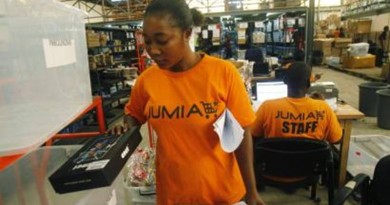Health care start-up, Babylon Health, says A.I. can diagnose patients better than humans can, doctors call that ‘dubious’
Health care start-up Babylon Health has said that its artificial intelligence (AI) is able to diagnose medical conditions as accurately as a doctor, but physicians have called the claims “dubious.”
Babylon has created a chatbot that lets you talk with an AI that can interpret symptoms and tell a person what the problem is. It is not an official medical diagnosis, however.
The British company fed its chatbot questions from the official exam set by the the Royal College of General Practitioners (RCGP) in the U.K. The RCGP is a membership body for family doctors in the U.K. and overseas. Any doctor practicing in Britain must pass this exam.
This test is not public, so Babylon used questions from previous exam papers to test its chatbot on its diagnostic skills. The average pass mark for real-life doctors over the past five years was 72 percent, according to Bablyon. Its AI, however, scored 82 percent.
“Tonight’s results clearly illustrate how AI-augmented health services can reduce the burden on health care systems around the world. Our mission is to put accessible and affordable health services into the hands of every person on Earth,” Ali Parsa, CEO of Bablyon, said in a statement Wednesday.
But the RCGP disputed some of Babylon’s claims.
“The potential of technology to support doctors to deliver the best possible patient care is fantastic, but at the end of the day, computers are computers, and GPs are highly-trained medical professionals: the two can’t be compared and the former may support, but will never replace, the latter,” Martin Marshall, vice chair of the organization, said in a statement Wednesday.
“No app or algorithm will be able to do what a GP does.”
Marshall said that the test Babylon used was for revision purposes only and not representative of the full range of questions and standards used in the actual exam.
“So to say that Babylon’s algorithm has performed better than the average candidate is dubious,” Marhsall said.
Babylon currently works with the U.K.’s National Health Service (NHS) on a product known as GP At Hand. It allows people to book a consultation with a doctor over a video call on their smartphone.
The start-up hit back at the RCGP over its statement.
“We make no claims that an ‘app or algorithm will be able to do what a GP does.’ As a GP myself, I am completely cognizant of this and that is precisely why, at Babylon, we have created a service that offers a complete continuum of care, where AI decisions are supported by real-life GPs to provide the care and emotional support that only humans are capable of,” Mobasher Butt, medical director at Babylon, said in a statement to CNBC on Thursday.
“I am saddened by the response of a college of which I am a member. The research that Babylon will publish later today should be acknowledged for what it is — a significant advancement in medicine. Instead, the RCGP’s statement focuses on shoring-up an outmoded and financially self-interested status quo which solely works to the benefit of a limited number of partner GPs, rather than celebrating a scientific achievement which has the potential to improve the lives of patients and clinicians globally.”
The controversy over Babylon’s claims comes at a time of increasing focus on health care from technology companies.





